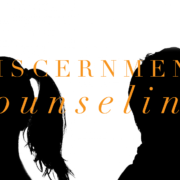What is Collaborative Mediation?
If you are getting divorced, you want to move forward as peacefully, quickly, and cost-effectively as possible. And so you should learn about collaborative mediation.
Mediation
Collaborative mediation is a combination of two forms of private dispute resolution: mediation and collaborative divorce. In mediation, you meet face-to-face with your spouse along with a neutral mediator (or co-mediators). The mediator does not decide issues for you. Rather, the mediator is there to facilitate an agreement between you and your spouse.
What is said during mediation is private and confidential. This means that statements or offers made in mediation cannot be used against you later in court. This confidentiality is protected by the Florida Mediation Confidentiality and Privilege Act (Florida Statutes §§ 44.401-44.406).
Though the mediator can help you and your spouse reach an agreement, he or she cannot provide you with legal advice. The mediator, for example, cannot tell you if you are making a good or bad deal.
Collaborative Divorce
In collaborative divorce, both you and your spouse are represented by your own attorneys. This means that your attorney can help you decide whether an agreement is in your best interests.
Collaborative attorneys are retained solely for the purpose of reaching an out-of-court agreement. In practical terms, this means that no time, energy, or money will be spent on preparing for contested court hearings, doing opposition research on your spouse, or engaging in expensive trial tactics. The attorney is there only to look out for your interests and help you peacefully resolve any disputes.
Collaborative Mediation
Collaborative mediation takes the best aspects of these two processes. In collaborative mediation, you privately meet face-to-face with your spouse, along with a neutral mediator or co-mediators. Further, you have the support of an attorney who is there only to help you reach an out-of-court agreement.
Even better, the extent to which you utilize your lawyer is up to you. One option is for each of you to have an attorney throughout the process, from beginning to end, and to have the attorneys attend each mediation session with you. You can also receive unbundled legal services, if you are looking to save funds, by attending mediation without a lawyer, but to have your attorney review and comment on an agreement once it is written up. Still, another option is to mediate without the lawyer on parenting issues, but have the lawyer attend collaborative mediation sessions which focus on financial issues.
The point is that collaborative mediation is customizable so that you can receive the level of support that you need. It is a process that will allow you to as quickly as possible put your divorce in the rearview mirror.
Adam B. Cordover is a collaborative attorney, trainer, and Florida Supreme Court Certified Family Law Mediator. Adam is co-author of an upcoming American Bar Association book on collaborative practice, and he leads workshops about out-of-court dispute resolution throughout the U.S. and in Canada.







